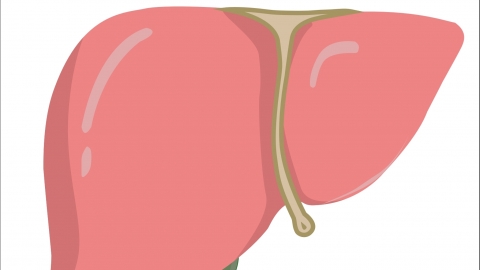What should one eat for liver disease, and which medications are the fastest and most effective?
Generally speaking, there is no such thing as "what to eat for liver disease, or which medications are the fastest and most effective." Patients with liver disease can consume foods such as milk, eggs, broccoli, spinach, and sweet potatoes. Additionally, medications such as Bilobil tablets, Adefovir Dipivoxil tablets, Entecavir tablets, Bifendate droppills, and Ursodeoxycholic Acid capsules may be used under medical guidance. The specific details are as follows:

I. Foods
1. Milk: Milk is rich in high-quality protein, calcium, phosphorus, and other nutrients. For patients with liver disease, protein serves as a crucial building block for liver cell repair and regeneration. The high-quality protein in milk provides essential support. Calcium and phosphorus help maintain bone health.
2. Eggs: Eggs contain abundant protein. This protein includes all the essential amino acids required by the human body. Moreover, the protein composition in eggs is very similar to that of human proteins, making it easily absorbed and utilized by the body. This is highly beneficial for liver disease patients in terms of nutritional supplementation and liver cell repair.
3. Broccoli: Broccoli is rich in nutrients such as vitamin C, vitamin K, folate, and potassium. It also contains antioxidant substances like sulforaphane. Vitamin C and folate can promote the repair and regeneration of liver cells, while antioxidants help eliminate free radicals in the body, reducing oxidative damage to the liver.
4. Spinach: Spinach contains rich amounts of vitamin A, vitamin C, iron, and folate. Vitamin A helps maintain normal liver cell metabolism. Vitamin C and folate can promote liver cell regeneration and repair. Iron is an essential component for hemoglobin synthesis, helping prevent anemia and ensuring adequate blood supply to the liver.
5. Sweet Potatoes: Sweet potatoes are rich in dietary fiber, vitamin A, vitamin C, and other nutrients. Dietary fiber promotes intestinal motility, aiding in the elimination of toxins from the body and reducing the detoxification burden on the liver. Vitamins A and C have positive effects on liver cell metabolism and repair.
II. Medications
1. Bilobil Tablets: This medication can remove free radicals within liver cells, protect liver cell membranes and mitochondria, reduce inflammatory damage to the liver, and simultaneously enhance liver protein synthesis, promoting liver cell regeneration. It has a lowering effect on elevated transaminase levels caused by chronic hepatitis.
2. Adefovir Dipivoxil Tablets: This medication is an antiviral drug used to treat chronic hepatitis B with evidence of active replication of hepatitis B virus, accompanied by persistently elevated serum aminotransferase levels or histologically active liver lesions. It inhibits the DNA polymerase of the hepatitis B virus, thus suppressing viral replication.
3. Entecavir Tablets: This medication is a potent and low-resistance anti-hepatitis B virus drug. It blocks the replication process of the virus by inhibiting the activity of hepatitis B virus polymerase. It is highly effective in treating liver diseases caused by hepatitis B virus infection, especially chronic hepatitis B.
4. Bifendate Droppills: This medication primarily lowers alanine aminotransferase levels and also has a certain lowering effect on aspartate aminotransferase. Its mechanism of action may involve inducing the activity of the cytochrome P-450 enzyme system in liver microsomes, enhancing liver detoxification function, and reducing liver inflammation.
5. Ursodeoxycholic Acid Capsules: This medication can increase bile acid secretion, inhibit cholesterol synthesis in the liver, and reduce the saturation of cholesterol in bile, thereby helping dissolve cholesterol stones. It is commonly used to treat cholestatic liver diseases, such as primary biliary cirrhosis.
Maintaining good lifestyle and dietary habits in daily life is important to promote recovery from the disease.








